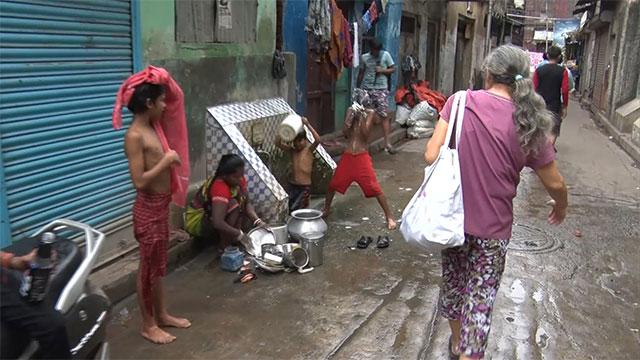
Ritsuko Shibuya's routine has hardly changed in the past 27 years. She walks the same route through the bustling streets of Kolkata.
And she always heads to the same place, Daya Dan Medical Center. It is a care facility founded by Mother Teresa. There, Ritsuko tends to abandoned children with severe mental and physical disabilities.
Ritsuko was born in Mie prefecture in central Japan, and at 16 went to Vienna to study piano. She studied there for 12 years.
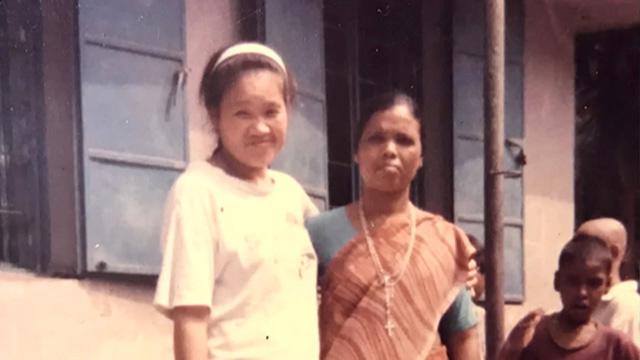
After graduating music school, she was set to return to Japan. But on the way back, she traveled for a couple years. Kolkata was one of her stops. By chance, she was invited to volunteer with Mother Teresa.
"It was the first time I saw a dead person's face," she says. "My impression on the first day was so shocking that I couldn't leave and just say 'Thank you for this experience.' I felt like I had to stay a little longer."
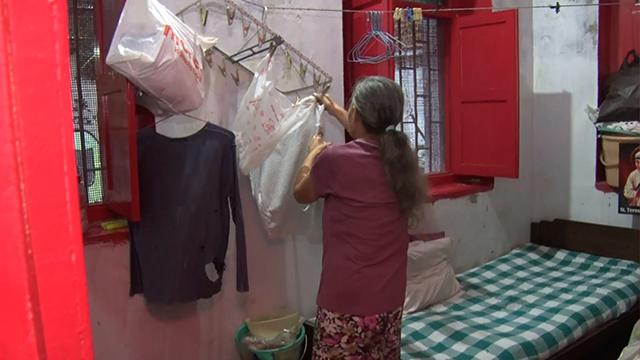
She's never left. She is unpaid and lives barely above poverty. Her room costs 5 dollars a day and doesn't come with air conditioning, a kitchen, or even hot water.
She doesn't consider her lifestyle a sacrifice.
"It isn't something I'm told to do," she says. "I choose to do this. If I don't like it anymore, I can simply give it up and go home. I don't find it difficult at all."
But why does she stay here, despite the difficult lifestyle.
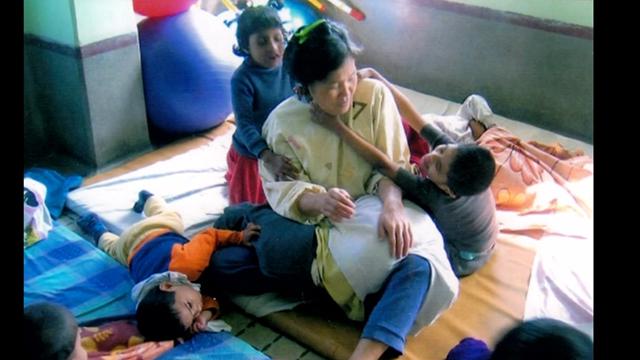
"The children are so alive even though they cannot talk or walk. And they always smile at me. They give me love that is precious to me. That's what keeps me here."
The children Ritsuko takes care of are unable to see, speak, or walk. On top of that, they were abandoned by their parents who were too poor to care of them. Ritsuko helps them use the toilet and works them on physical therapy.
She says her work is fulfilling. But it can be very difficult at times.
"It's harder than anything to see a child I've taken care of for a long time die," she says. "When I see the children in their final days, it's hard for me to think about losing them. Every child needs to feel the warmth of love until their final moments."
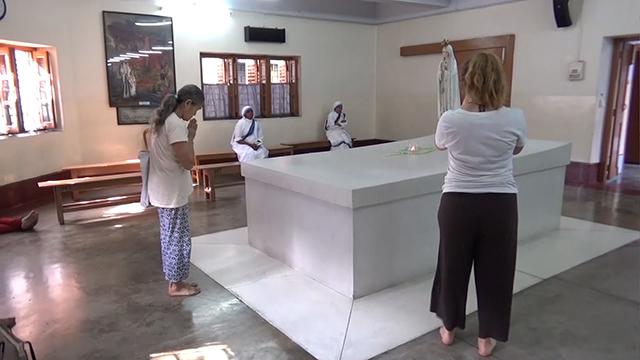
Ritsuko took me to visit Mother Teresa's final resting place.
"It's Mother Teresa's words that give me strength," she says. "If I eat well, wear nice clothes, and live in a good place, I can't serve the poor. I have to live like them to be able to help them."
Mother Teresa had this to say when she visited Japan in 1981.
"I think many people in Japan don't know the poor of the country. There are poverties - spiritual poverties also.
It is not poverty only hunger for bread. There is hunger of love. You find that in well to do countries more. And it is easier to remove material poverty than to remove heart poverty."
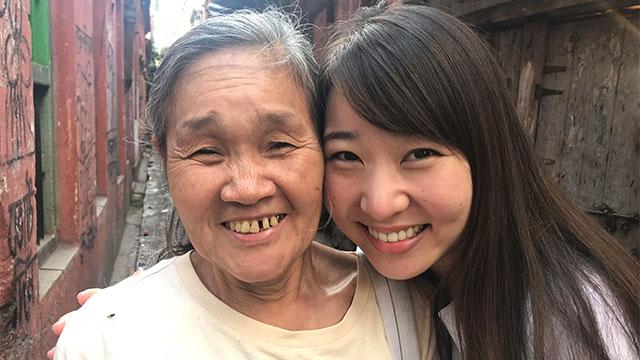
After meeting Ritsuko, I feel like I have a better understanding of what Mother Teresa meant. And Ritsuko's work here seems to have struck a chord with people back in Japan as well.
Support groups donate money to help her get by. "I can't live exactly like her but I can sacrifice a cup of coffee or lunch," says a member of one such group. "Even if it's a small contribution, I want to be able to help Ritsuko and the children."
Ritsuko hopes that the rest of the world doesn't forget about the plight of India's poor now that the country is experiencing economic growth.
But she says she will do her part to make sure the children aren't left behind. She says she wants to work here for another 12 years at least, when she turns 70.
